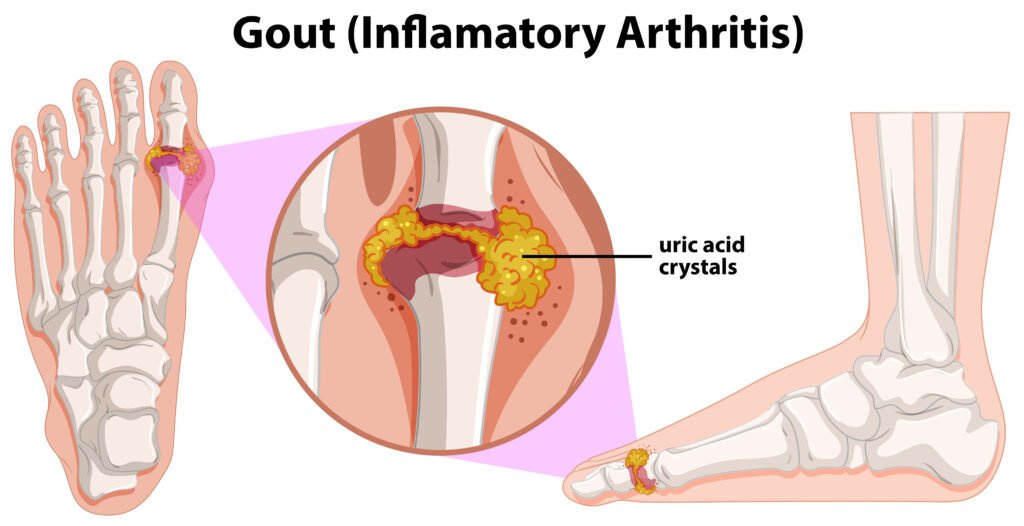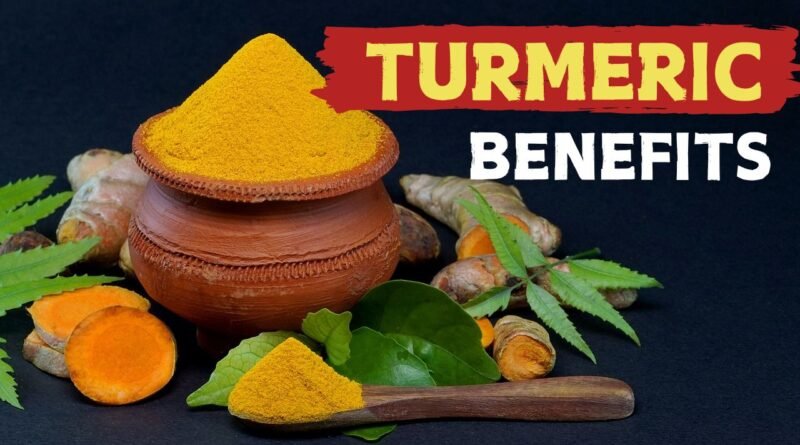12 Health Benefits Of Turmeric You Should Know
What are the health benefits of turmeric?
Turmeric is not only a familiar spice but also a miraculous medicinal herb thanks to curcumin – a compound with strong antibacterial and anti-inflammatory properties. In addition, turmeric provides a variety of vitamins and minerals such as Vitamin C, K, E, potassium, calcium, iron, and other antioxidants and anti-inflammatory agents that help improve overall health.
Here are some amazing health benefits of turmeric that you should not ignore!
1. Turmeric helps relieve arthritis pain
Turmeric is often used as a pain reliever, especially for arthritis, due to the anti-inflammatory and pain-relieving properties of curcumin. In some cases, it is even more effective than anti-inflammatory drugs. A study conducted on individuals with knee arthritis showed that taking 800mg of turmeric capsules daily had the same pain-relieving effect as ibuprofen. The Arthritis Foundation recommends using 400-600mg of turmeric up to three times a day to reduce arthritis inflammation.

2. Turmeric improves digestive health
The active ingredients in turmeric play an important role in digestion. Turmeric starch has protective properties for the stomach lining, forming a barrier that prevents bacterial invasion. The bright yellow root neutralizes and destroys harmful bacteria such as Helicobacter pylori, which causes stomach ulcers. Turmeric improves digestion and stimulates bile secretion, aiding in better and easier digestion. One of the amazing health benefits of turmeric is also known to reduce bloating and gas symptoms.
3. Turmeric for beauty and anti-aging
Turmeric contains vitamins C, E, and K, along with curcumin, which stimulates the production of new cells, fights harmful bacteria, and eliminates free radicals. This helps combat aging and keeps the skin youthful and healthy. Turmeric’s anti-inflammatory and antibacterial properties also make it an effective treatment for acne, eczema, aging, and psoriasis. Turmeric also reduces melanin production, tightens skin, and brightens the complexion, making it a top food for beautiful skin.
4. Improves brain health
Curcumin positively impacts the brain by boosting serotonin and dopamine, helping reduce inflammation and improving brain plasticity. Studies on both animals and humans have found that curcumin increases BDNF levels in the brain, which helps delay or reverse brain diseases and cognitive decline associated with aging. Turmeric can also enhance memory and concentration.

5. Prevents Alzheimer’s disease
Alzheimer’s disease is the most common neurodegenerative disorder and the leading cause of dementia. Curcumin’s anti-inflammatory and antioxidant properties reduce cholesterol levels in the brain, limiting the risk of Alzheimer’s disease. While symptoms can be treated, it’s better to prevent the disease from occurring in the first place.
6. Improves liver function
Turmeric has powerful antioxidant properties and boosts the production of enzymes needed to detoxify the blood in the liver. This process helps protect the liver from toxins, supporting the treatment of diabetes and other conditions that damage the liver, making turmeric a valuable tool for liver health.
7. Prevents cancer
One of the major health benefits of turmeric is its ability to prevent cancer. Curcumin has shown promise as an anti-prostate, pancreatic, and multiple myeloma cancer compound. Studies have found that curcumin affects cancer growth, helping to destroy cancer cells, reduce tumor blood vessel formation, and limit metastasis. Curcumin can even prevent gastrointestinal cancers like colorectal and colon cancer.

8. Reduces the risk of heart disease
Curcumin improves endothelial function, reversing steps in the development of heart disease. It also reduces inflammation and oxidative stress, both critical in cardiovascular conditions. In a study with 121 bypass surgery patients, those who took 4g of curcumin daily before and after surgery reduced their heart attack risk by 65%.
9. Fights depression
Curcumin can alleviate depression symptoms and enhance the effects of antidepressants. A study with 60 patients showed curcumin was as effective as fluoxetine in treating major depressive disorder, highlighting its potential as a safe, effective treatment for depression.
10. Prevents and treats type 2 diabetes
Curcumin has anti-inflammatory effects that help maintain stable blood sugar levels. As a result, turmeric is a useful remedy for preventing and treating type 2 diabetes, improving disease management, and preventing complications such as cataracts or nerve damage. Turmeric also reduces insulin resistance, which contributes to high blood sugar levels.

11. Heals wounds and treats scars
Turmeric’s antibacterial properties make it highly effective in wound healing. Applying turmeric to wounds or burns speeds up recovery, regenerates skin, and prevents scarring.
12. Supports weight loss
Turmeric can block fat accumulation in the body. It promotes the digestion of fats and aids in their natural elimination, supporting weight loss and inhibiting fat tissue growth. One study showed that people who couldn’t lose weight saw significant body mass reduction after 30 days of curcumin supplementation. Combined with a balanced diet and regular physical activity, turmeric is a magical tool for weight loss and improving body shape.
In addition to the health benefits of turmeric, side effects of turmeric you may experience include:
- Nausea
- diarrhea
- ulcers, rash
- abdominal pain
- blood thinning
- and triggering contractions.

Here are some notes when using turmeric:
- Do not use turmeric in excessive doses, it may cause side effects such as jaundice, diarrhea, nausea…
- You should consult your doctor before using any medication.
- Safe doses are up to 8g per day for 2 months or 3g daily for 3 months.
- Pregnant women should avoid high doses of turmeric as it may stimulate the uterus, increasing miscarriage risk.
- People with gallstones, clotting disorders, breast or cervical cancer, liver disease, or preparing for surgery should avoid turmeric supplements.
- Turmeric may interact with medications like aspirin, NSAIDs, statins, diabetes, blood pressure, and anticoagulants.
Turmeric Products
Turmeric can be found in various forms, each suitable for different uses and preferences. The most common include:
Fresh Turmeric: Fresh turmeric can be grated or sliced and used in cooking or smoothies to add flavor.
Turmeric Powder: Widely used in cooking, it can be added to many recipes such as curries, soups, teas, and smoothies.
Turmeric Capsules: Produced in capsule form, these are convenient for supplementation.
Extracts and Drops: Liquid forms that provide concentrated doses of curcumin, which can be added to drinks or taken directly as medicine.
Turmeric Tea: Available as tea bags or pre-made tea, this is a convenient way to enjoy the benefits of turmeric in a daily drink.
Turmeric Essential Oil: Used in aromatherapy and for topical application, offering concentrated anti-inflammatory and antibacterial benefits.
Turmeric-Infused Cosmetic Products: Used in skincare, these products leverage turmeric’s anti-inflammatory and antioxidant properties to treat conditions like acne or eczema and improve skin health.
Incorporating turmeric into a balanced diet is a natural and effective way to enhance overall health and well-being. Whether used in culinary applications, as a supplement, or as a skincare product, the benefits of turmeric make it a valuable addition to a healthy lifestyle. Be sure to use the right dosage to improve your overall health! And don’t forget to share this video if you find it helpful!

